LOCKDOWN REFLECTIONS: DAY 126
Silver linings appear despite the fear, anxiety and disorder
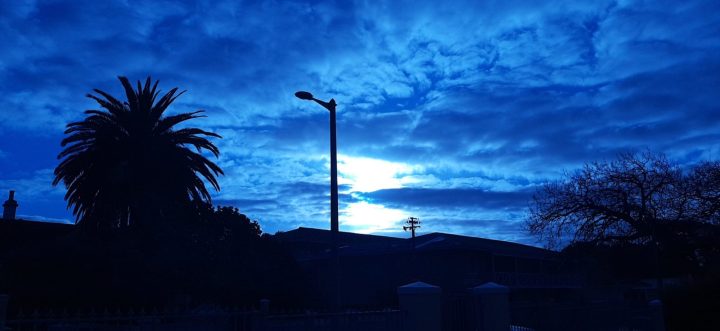
South Africa went into a hard lockdown on Friday, 27 March in the hope of blocking the spread of Covid-19. The lockdown was extended, then the country started slowly opening up. Currently, at Level 3 of lockdown, coronavirus cases have spiked, correlating with South Africans’ dwindling appetite for following regulations. These reflections are part of a weekly series that monitors stay-at-home life in various neighbourhoods.
A silver lining in the clouds
Rondebosch, Cape Town: Cape Town weather is known for being unpredictable. In the space of a few minutes, sunshine can replace grey, rainy skies. Most recently, scorching heat preceded a bitter cold front. It’s frustrating, to say the least. You’re often forced to slap on a puffer jacket in 30-degree heat, just in case Mother Nature decides to have a meltdown and leave you drenched. But even if the metaphor is a cliché, it’s the clearest example of the current season.
You wake up some days with hope and vigour and, on others, you find out a family member has Covid-19. As a Christian, sometimes my faith is strong but at times I question God’s plan with all of this madness. It all seemed so sudden, no forewarning, just a downpour of tragedy.
As a nature lover, I sometimes sit outside and stare at the clouds rolling by, trying to find some meaning to the chaos. “Seven thousand new cases. Ten thousand new cases. Twelve thousand new cases.” The daily count. It’s overwhelming, just sitting there watching life unfold, but feeling like you have no control.
I tried to chase the light this weekend when I ventured out for breakfast at a café. It was a strange yet comforting feeling being surrounded by people just “doing life”. There was the hum of chatter, plates clinking and laughter. The life-giving energy I’ve missed so dearly. It was also great to see how, instead of being handed menus, we could scan a QR code and access the menu online. Smart.
Amid the darkness and uncertainty, you must search for the slivers of sunlight breaking through the clouds. When I stepped outside this morning as the world was waking up, I spotted them in the distance. Two bright patches reminding me that everything is going to be all right. – Sandisiwe Shoba
Mental health matters really do matter

Wendy, the therapist, on the show shows how important mental health is not just for our personal lives but for work lives as well. (Photo: Publicity shot)
Mowbray, Cape Town: I recently started watching Billions, which is basically about Ax, who owns a hedge fund, and Chuck, an attorney, trying to outdo each other. It’s entertaining and has many plot twists.
What I really love about the show is Wendy. She’s a therapist for Ax and his employees. She’s empathetic and non-judgemental. But, most important, her role highlights how important mental health is for you to perform at your optimum best.
I’ve seen a few therapists in my life and I’m eternally grateful for the work that they do in helping me deal with things and see unhealthy patterns I probably wouldn’t have seen without their help.
During these difficult times, as boring as it may sound, that’s the one thing I’m looking forward to: speaking to a therapist. The longer lockdown goes on, the more difficult it becomes to cope without my family, without regularly going outside and seeing them. Everything is stressful and I’m grateful that I get to have a therapist. – Karabo Mafolo
The uncertainties of seeking piece work on street corners
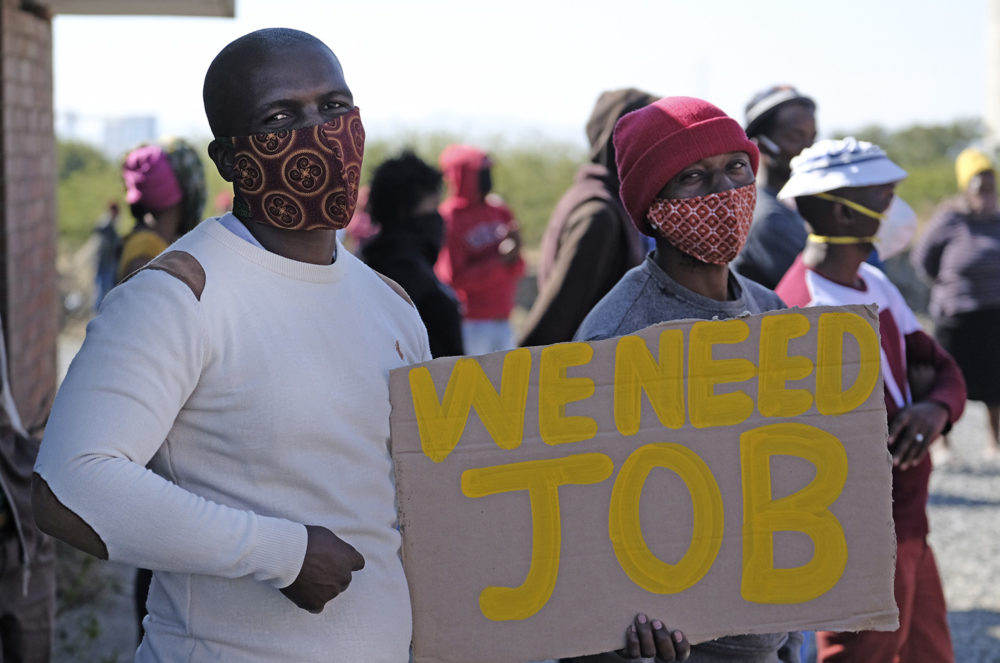
(Photo by Gallo Images/Dino Lloyd)
Johannesburg South, Gauteng: Ever since I’ve lived in the neighbourhood I live in, there has been one constant – the gentlemen who stand at specific street corners around here with the tools of their trade, asking for a piece job.
Over the years, the frequency at which they actually land those piece jobs has decreased. I’m not sure the exact reasons for this, but I speculate that it could be that homeowners here have less money to spend as the cost of living has increased over the years.
Another major reason could be distrust. Over the years we’ve heard a handful of incidents where people had posed as job seekers, only to reveal themselves as criminals who then robbed the homeowners. So, those few bad eggs might have ruined things for the honest and desperate job seekers.
Now, with all the pillaging of public funds by politicians that we have witnessed in the last few months, I can’t help but wonder how many more desperate people will find themselves coming to sit at those street corners, and still go home empty-handed.
We have seen reports recently that indicate that a basic income grant could be on the cards for unemployed South Africans in the near future. However, if the handling of food parcels meant for the poor and vulnerable as well as the issue of R350 relief grants are anything to go by, South Africans should saddle up for a bumpy ride ahead. – Yanga Sibembe
When your shopping is interrupted in a strange new way

Recent items from my latest shopping trip. Shopping under lockdown and a pandemic is different, strange and a rushed experience for me. Photo: Suné Payne
Oranjezicht, Cape Town: In 126 days of lockdown, there have been seven birthdays of friends and family of mine. Some have been huge milestones, some have been birthdays involving the laughter of kids. No more the usual big lunches with my family, gone are the nights of dancing with my best friends, arguing about the best place to go to in Long Street.
But in the long drawn-out lockdown and the new normal, it is the simple pleasure and intimacy of shopping I miss. Gone are the days of smiling at a cashier or at an assistant. Of smiling at them when another customer is rude – now it is time for us to actually use our voices, speak out when some idiot refuses to wear a mask or is just rude to essential workers. I miss aimlessly wandering through the shopping malls, looking and touching different fabrics, different items. I miss those small moments.
And you can see it in the shops that I am not alone. Often, I see people rushing into shops, their body language indicating that they do not want to be there, people pushing hand sanitising foot pumps excessively in an effort to scrub their hands clean of any germs. You can pick up the fear in parents’ expressions and tone, when they keep their children close and not touching things. At the shopping mall close to my mother’s house, children are made to wait outside the mall while their parents are doing their shopping. The workers in grocery stores and pharmacies seem accustomed to the idea of wearing masks while working, but more than twice I have overheard them say they were scared for their families and the public transport they need to take to work.
It’s a different way of living, when your shopping is disrupted in a new strange way. This forces you to make snap decisions on clothing as many shops do not allow you to fit clothes on in-store. You cannot take too long in a shop, or else you risk contracting Covid-19… and, heaven forbid, you forget any item off your grocery list. – Suné Payne
Hunger and poverty did not stop the brazen looting
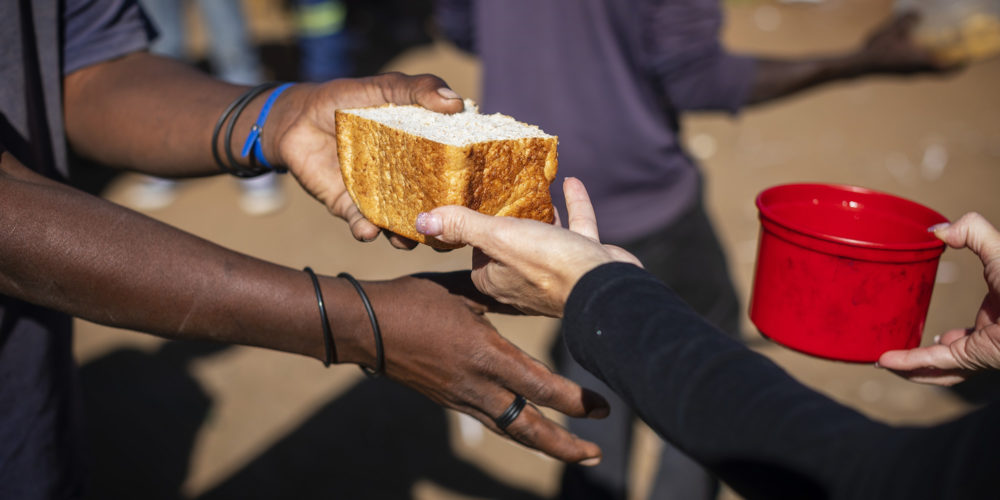
(Photo: EPA-EFE/KIM LUDBROOK)
Johannesburg, Gauteng: There is something unfathomable about how easily government funds land up in the hands of the politically connected.
But to witness it even as we face a pandemic is nefarious. Not when so many South Africans including non-South Africans have lost their income and livelihoods.
Three million people are recorded to have lost their jobs between the period when the national lockdown was announced in March and April – an unbelievable 18% decline in employment.
Hunger and poverty stalk many South Africans. Even those that are still in employment have been dealt with pay cuts.
As if ordinary South Africans are not already taking heavy blows, our government is looting and abusing Covid-19 relief funds.
Amid all the hunger, job losses, family losses, livelihood losses, we have to face the reality of a government that has continuously failed its people, even during these tough times.
A Lesotho national is said to have died of starvation in Waterworks, Lenasia.
Community members that spoke to Daily Maverick detailed a life lived under unemployment, hunger and poverty. More gravely, they had not seen or heard of any form of relief offered to them during this time.
“We are so hungry we could easily eat the crust from a wound,” one community member was quoted saying.
Our government’s response to the pandemic in its early days offered a grain of hope that maybe, just maybe, our government would put the needs of its people first for once. Instead, we again witnessed the total disregard and respect for public funds meant to uplift citizens and support the fight against this pandemic. I hope this is the straw that breaks the camel’s back. – Ayanda Mthethwa
New social media campaign fights against GBV
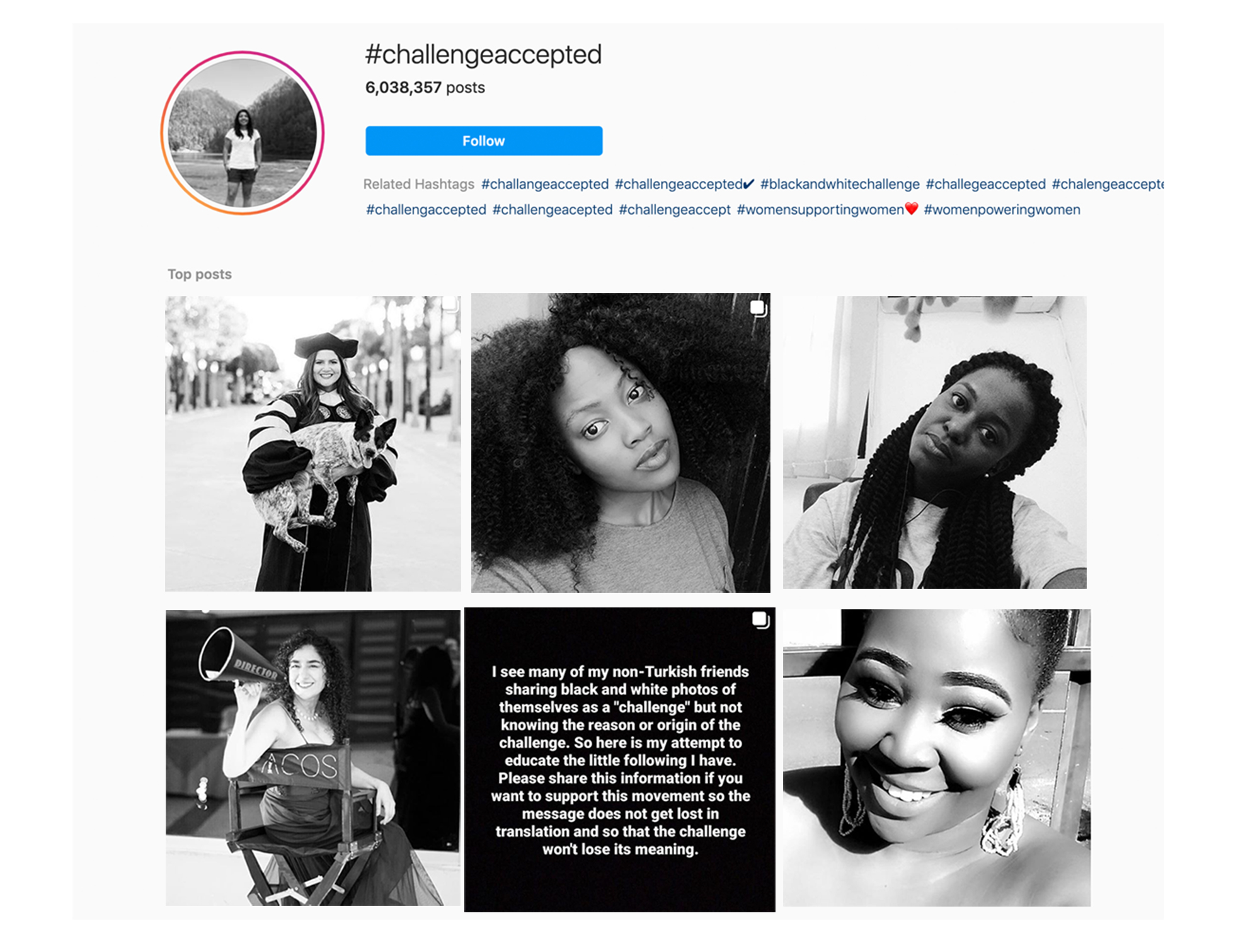
The #ChallengeAccepted tag circulating on social media this week has highlighted how GBV and femicide continues to increase in countries like South Africa and Turkey.
West Rand, Gauteng: Remember at the beginning of lockdown, over 120-something days ago, when a lot of social media challenges were going on. Like the one where you had to tag five people in a posted photograph of yourself and then nominate five other friends, and so the cycle went on, but you had to do it in less than #24Hours. The whole point of that particular challenge was to “spread positivity”.
Or the #EggChallenge which involved swallowing a raw egg, followed by sugar and then taking a shot of rum or brandy. I’m not quite sure what the point of that one was, but still, it was a challenge that went viral very quickly.
But recently I was sent a message by a friend who nominated me to participate in one called the #ChallengeAccepted tag. In the challenge, I am required to post a black and white selfie of myself, which of course I had, tag the person who nominated me and then send the same message to 50 other women (I only sent it to nine).
And that was it.
And though I thought the challenge was like the one at the beginning of March which would be about just clearly “spreading positivity”, I never thought much about it.
Until now.
More than 6 million women have participated in the challenge across the world and on multiple social media platforms like Instagram (being the main one), Facebook and Twitter.
This got me thinking: the message was very clear that only women should participate and, if that many people were being nominated and actively joining in, that surely meant something more significant than just posting a selfie, right?
It turned out that this was not your average challenge, it’s a campaign.
The challenge is meant to promote female empowerment, and nominating friends to take part in the campaign is a way for “women to support each other”.
But it’s way more than that as the challenge actually originated in Turkey to raise awareness about the high rates of femicide in the country.
The black and white images are meant to be a symbol for women to stand in solidarity with them.
But also to allude to when it is reported that when a woman dies at the hands of men in Turkey, generally, pictures used in newspapers and such is a black and white image mostly taken from your social media account.
I can’t help but think back to when 19-year-old University of Cape Town student Uyinene Mrwetyana was tortured, raped and murdered by a man who worked in a post office on 24 August 2019.
I can’t help but think of the #AmINext movement that followed shortly after that.
And I can’t help but look at how femicide and gender-based violence in our country have been dubbed the shadow pandemic, especially during this time of Covid-19.
It’s interesting that as I am thinking about all these events that happened in our country, and looking at a movement like the #ChallengeAccepted campaign happening, I am left wondering how much will come out of this plight of violence against women.
Because, if you think about it, and think long and hard about it, how much has changed since angry protesters marched to Parliament in Cape Town to demand action from President Cyril Ramaphosa to address gender-based violence and femicide in South Africa?
How much has actually been done since the president presented his emergency plan to Parliament to put a halt to gender-based violence?
But alas, we can’t take our fight out in protest the same as we used to without it being a great risk, so I take this opportunity to appreciate campaigns like the #ChallengeAccepted as it reminds me that we are still fighting, even if the fight is just online. – Chanel Retief
A glimmer of hope amid the gloom
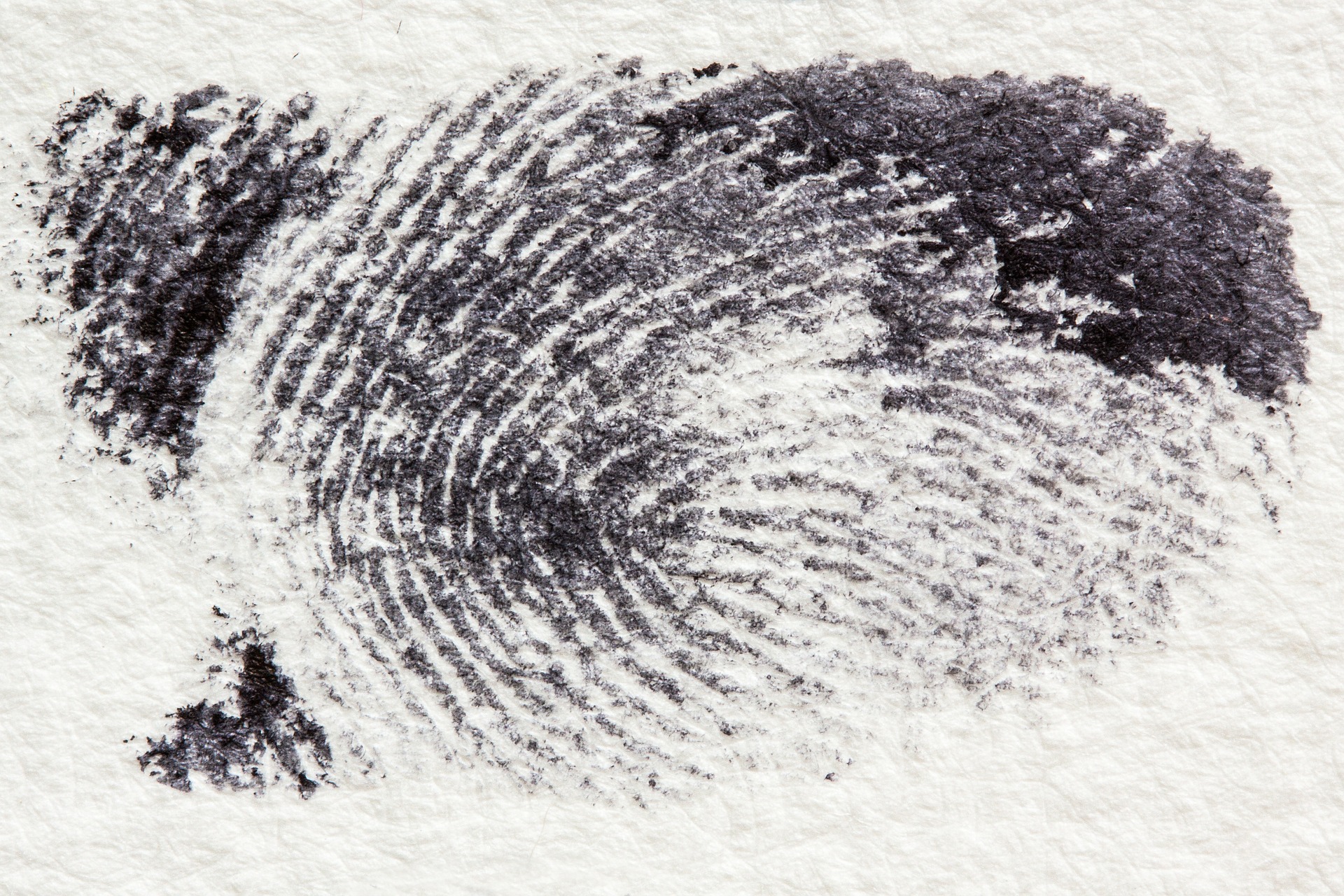
(Image by Thanks for your Like • donations welcome from Pixabay)
Soweto, Gauteng: When many South Africans were grappling with the devastation caused by the coronavirus, a disabled 50-year-old Kenneth Siyapi from the Vaal was involved in a battle of his own with Home Affairs. Siyapi had been trying to register for an identity document before the lockdown began.
He visited the Vaal Home Affairs offices and officials told him to go to Orlando, Soweto Home Affairs. This is where he would turn up for the next three months of lockdown from March till June. According to Siyapi, not even on a single occasion had Orlando Home Affairs attempted to assist him.
They told him that he had two ID numbers, and offered him no further assistance. He kept going back to try to explain his situation, but he was told to learn to be patient. Angry, starving, and dejected, Siyapi approached Daily Maverick, who reported on his plight.
Three weeks later, an elated Siyapi shared a picture of boldly inked fingers, proof that Home Affairs had finally registered him.
Siyapi lost one leg after he was involved in an accident about 30 years ago. The father of three boys has been struggling to make ends meet since his activity was curtailed by the accident.
Speaking to Daily Maverick on Thursday 30 July, Siyapi said the first thing that he would do as soon as he gets his ID, which he could not do without an ID, would be to go to register for the disability grant.
“I will apply for my disability grant soon as I get my ID. This is important because I used to make ends meet by selling liquor, but seeing that the ban on alcohol has been reinstated, even when I get my ID I won’t be making any income,” said Siyapi.
He added: “My best best for survival is to register for my disability grant, even though it might be a while before I get the money.” – Bheki C Simelane DM


















 Become an Insider
Become an Insider